
Virtual reality gaming isn’t quite the future just yet but it’s making progress. Contrast the current scenario to more than a year ago when Oculus Rift was still seeking a release date and Sony announced Project Morpheus. Since then, we’ve had the likes of Samsung, HTC/Valve and many more jumping into the virtual reality market, all seeking to make their mark. This has further facilitated the development of VR games like nDreams’ Gunner.
Unlike many of the elaborate AAA blockbusters that decades of refinement have brought to the current generation of consoles, Gunner is an arcade shooting game wherein you man a giant turrent and fire at alien ships. It’s been aptly described as “Space Invaders in VR” but pretty much demonstrates an experimental framework within a commercial game concept. GamingBolt had the opportunity to speak to nDreams CEO Patrick O’ Luanaigh about Gunner and the various challenges the development team faced.
"Gunner was designed specifically for the Gear VR, and we felt that not requiring a controller would provide an intuitive first VR game for people – just turn your head to shoot!"
Rashid K. Sayed: From working in a single-room office, developing prototypes, to raising $2.75 million and creating Gunner, the first commercial Gear VR title – how has the nDreams’ journey in the gaming industry been thus far?
Patrick O’ Luanaigh: We have certainly had a crazy few years, and it has been an exciting ride so far. We started working in PlayStation Home, creating a big global ‘alternate reality game’ for Sony called Xi. It went really well, and we used that as a springboard to become the largest publisher on PlayStation Home, which was a fantastic platform for experimenting and trying things out. We grew year by year, up to around 20 people.
Then, just over 18 months ago, we tried out an Oculus DK1 and Sony’s Project Morpheus, and fell in love with Virtual Reality. I immediately felt that it was going to be something genuinely revolutionary – an incredible way to immerse players in new worlds. So we pivoted the company to focus on VR. Since then, we have grown to 30 people, working on launch titles for all the major VR headsets.
Rashid K. Sayed: What prompted you to make Gunner a virtual reality game, especially given its relative youth in the industry and in commercial use?
Patrick O’ Luanaigh: Since we started working on VR, we spent time talking to both Oculus and Sony about VR, and were lucky enough to hear about the Gear VR fairly early on. When we first heard about it, we sat down to think about a game design that would really suit the headset, and could be created relatively quickly in time for launch. So Gunner was designed specifically for the Gear VR, and we felt that not requiring a controller would provide an intuitive first VR game for people – just turn your head to shoot! The hardware launch took a little longer than expected, so we used the extra time to polish the game and add some new features like the “horde mode”.
Rashid K. Sayed: You’ve described Gunner as “Space Invaders in VR”. What more can you tell us about the gameplay and its relative length compared to today’s non-VR titles?
Patrick O’ Luanaigh: We have a narrative-based story mode which covers five missions (each taking about 15 minutes), and a horde mode, which allows you to play endlessly, competing against other player’s scores. We’re also planning some DLC in the future to add additional missions, and some other cool features. We have motherships, different planets, different types of enemy ships and a variety of weapons and add-ons as you progress through the game.
"Actually, Gunner is just one of five VR titles that we have in development. We have a second Gear VR title called Perfect Beach launching soon, and we’ll be talking about a much bigger VR game for Morpheus, HTC Vive and Oculus Rift called The Assembly at E3 in June."
Rashid K. Sayed: What’s the key difference in developing for VR as opposed to developing for your usual gaming platforms? What benefits has it presented over the traditional methods of gaming?
Patrick O’ Luanaigh: There are many differences, but some of the most important are: Cut-scenes don’t work well in VR, so don’t tell your story using cut-scenes; control systems need to be rethought, particularly movement; movement speed and rotation speed need to be realistic; GUI and on-screen displays are tough in VR; try to avoid them, particularly text; and finally, don’t drop players into the action – people like to look around and explore in VR!
Rashid K. Sayed: Now that Gunner is commercially available, what hurdles and challenges are you facing with the game?
Patrick O’ Luanaigh: It’s great to have a VR game live and generating revenue. We’re keeping our eye on the hardware install base, and watching how that develops over time. The current Gear VR has been launched as an ‘Innovator Edition’, so it’ll be interesting to see how Samsung market and sell the headsets, as well as what happens later in the year. John Carmack has talked about new Gear VR models launching later this year in a much more public-facing way, so we’re looking forward to really pushing Gunner towards a much bigger audience when that happens.
Rashid K. Sayed: Will your next game also be a VR title? Or will you continue to focus on Gunner for the foreseeable future?
Patrick O’ Luanaigh: Actually, Gunner is just one of five VR titles that we have in development. We have a second Gear VR title called Perfect Beach launching soon, and we’ll be talking about a much bigger VR game for Morpheus, HTC Vive and Oculus Rift called The Assembly at E3 in June. It’s a high quality VR first-person adventure game with a great twisting narrative, designed for VR from the ground up. We also have a couple of other VR titles that we haven’t discussed yet – all we can say is that they’re very exciting!
Rashid K. Sayed: Will Gunner had additional content somewhere down the line, perhaps in the form of free levels and such?
Patrick O’ Luanaigh: Yes – we’re planning some DLC later in the year with additional missions and some gameplay-expanding surprises!
Rashid K. Sayed: What are your thoughts on co-op gaming for VR devices? How possible would it be down the line and could Gunner implement it at some point?
Patrick O’ Luanaigh: We’ve been playing around with some multiplayer VR technology and it works really well – so there is absolutely no reason why co-op (or competitive) gaming won’t work just as well in VR than it does on standard PC, console or mobile games. I don’t think it’s something we’d do for Gunner, but it’s definitely something that you can expect to see from us in the not-too-distant future.
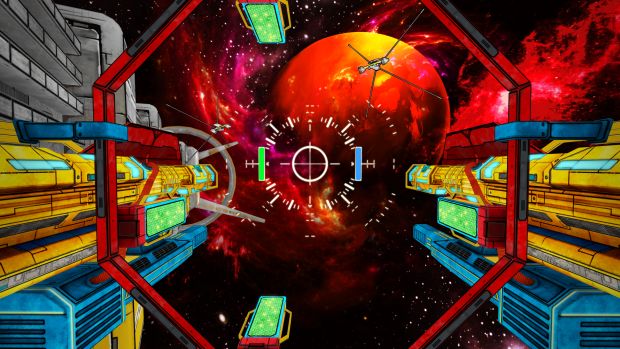
"Mobile VR has a huge future – it’s relatively cheap, wireless, mobile and accessible by a huge audience. So I think you’ll see Samsung continue to lead the way as they develop and grow Gear VR, but other companies entering the space."
Rashid K. Sayed: What are your thoughts on HTC/Valve’s Vive and Sony’s Project Morpheus? Will you create games for these VR platforms alongside Rift and Gear VR?
Patrick O’ Luanaigh: They are both fantastic headsets, and we have been working with the Morpheus for quite a long time now – we’re thoroughly enjoying developing for it. I had the chance to play with the Vive at GDC and it blew me away – it’s an incredible piece of hardware, it’s the accuracy of the Lighthouse tracking system that makes it so special. We’re working on launch titles for both headsets, so – as they say – watch this space.
Rashid K. Sayed: Concerning the future of VR, do you believe that it will propagate beyond Samsung’s Gear VR into a wider stream of mobile devices? How far would we be from VR gaming on the go?
Patrick O’ Luanaigh: Mobile VR has a huge future – it’s relatively cheap, wireless, mobile and accessible by a huge audience. So I think you’ll see Samsung continue to lead the way as they develop and grow Gear VR, but other companies entering the space. I think it’s highly likely that companies like Google and Apple will deliver VR headsets – either themselves or in partnership with other companies – and I expect mobile VR to be a very fast growing segment of the VR space.
Rashid K. Sayed: Oculus Rift has come a long way in the last 2 years but there is still a bit of confusion regarding what games it supports and games that it does not work with. Do you think fast paced games like First Person Shooters will work with Oculus Rift?
Patrick O’ Luanaigh: At the moment, I don’t think fast paced shooters work well on any VR headset, and I’m not convinced they ever will. Why? In good VR, you have a sense of presence – you *believe* you’re actually there. And, in the real world, if you spin around three times per second or accelerate at the speed of Usain Bolt heading off the blocks (like you do in a game such as Call of Duty), you’re going to feel pretty ill pretty quickly!
Your body is used to doing things at a comfortable ‘realistic’ speed – turning no quicker than one revolution every couple of seconds for example. So I don’t think ports of high-paced console/PC shooters will work in VR. But that doesn’t mean you won’t see great first-person shooters – they will just be a little different. They will be slower paced. They will feel much more like reality – and that’s great!
Rashid K. Sayed: Regardless of the potential on offer, it’s the games line up that matter so what kind of software catalogue do you think these VR devices will have on launch?
Patrick O’ Luanaigh: I think all the hardware companies understand the importance of great software and I strongly suspect that you’ll see a lot of VR titles being revealed at E3, Gamescom and TGS in 2015. More and more developers are getting involved with VR, and that’s a great thing for everyone planning on buying a headset.
"I think all the major headsets are more than good enough for launch now. No doubt over the years, resolution will continue to increase, but having used them extensively, I think they are good enough for a great VR experience as they are today – it’s a great starting point."
Rashid K. Sayed: Another issue that I am not clear on is the costing of these devices. Obviously you would need a mid tier pricing scheme so that people can buy your games. What kind of retail price tag can you estimate for these devices?
Patrick O’ Luanaigh: I don’t know the initial retail price of any headset other than the Gear VR (which is £169 as I type this), but I suspect they will be more expensive than most people imagine. VR technology is pretty advanced, and most new technology tends to be pretty expensive at launch, with costs dropping over time. I don’t think VR will be any different, particularly when you consider the cost of two Lighthouse boxes and controllers for the Vive, for example!
Rashid K. Sayed: The resolution is still an issue with these devices. What kind of improvements do you think we will see in this regard in the future?
Patrick O’ Luanaigh: I think all the major headsets are more than good enough for launch now. No doubt over the years, resolution will continue to increase, but having used them extensively, I think they are good enough for a great VR experience as they are today – it’s a great starting point.
Rashid K. Sayed: Do you think DX12 will have a major impact for VR Gaming?
Patrick O’ Luanaigh: Yes. DX12 seems to be incredibly fast and capable of delivering some massive performance benefits. We’ve been talking to both AMD and nVidia, and I think you’ll see the combination of DX12 and new PC graphics card technology make high-resolution, high quality, high frame-rate PC VR achievable. The work that AMD are doing with Liquid VR is incredibly impressive, and their SDK and hardware will allow super lower-latency VR. The nVidia Titan X is also amazing, and I suspect will take full advantage of the power of DX12.
Rashid K. Sayed: Is there anything else you want to tell us before we let you go?
Patrick O’ Luanaigh: Well, that was a very exhaustive set of questions. All I’d say is to keep an eye out for our announcements and reveals coming out of E3 2015!








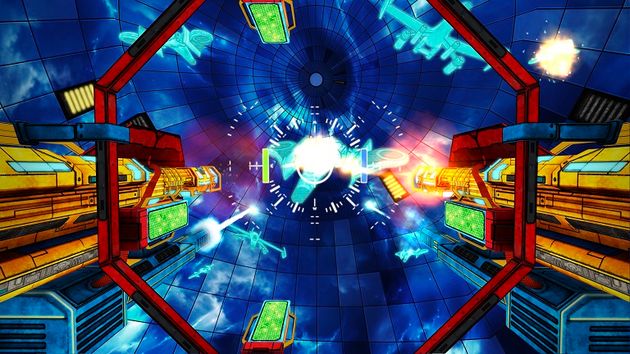

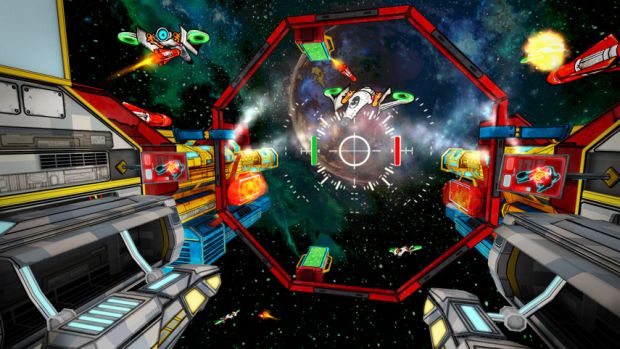

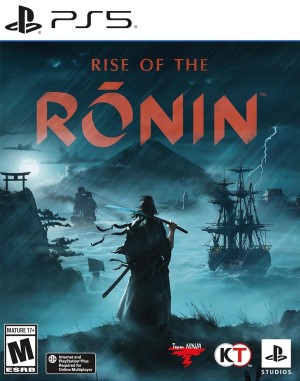




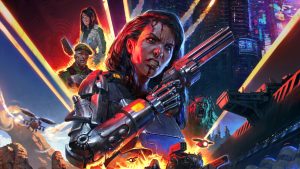

Share Your Thoughts Below (Always follow our comments policy!)